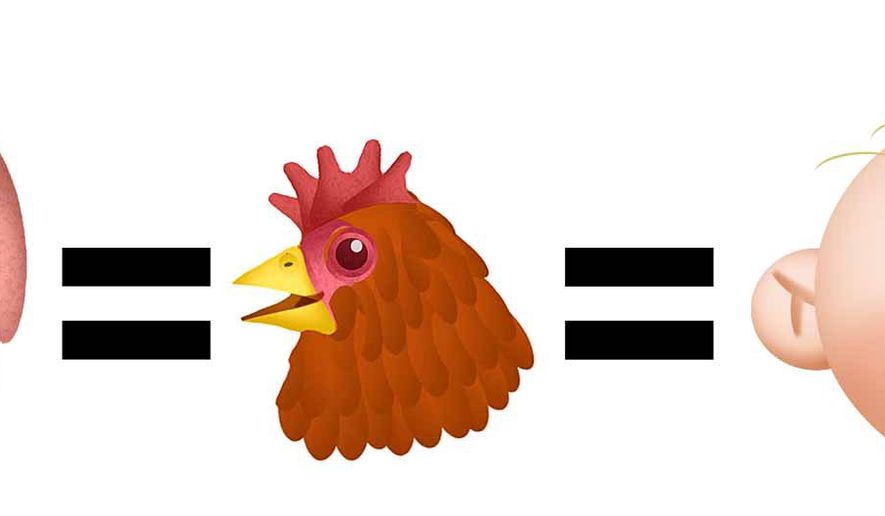OPINION:
Peter Singer, Princeton professor and author of the book “Animal Liberation,” will be taking his radical views center stage at the upcoming “The Future of Food” event in Washington, D.C. Hosted by the extremist Humane Society of the United States (HSUS), the choice of Mr. Singer to keynote the event offers a peek at just how out of touch animal liberation activists are: While Mr. Singer is against eating animals, he’s OK with the idea of having sex with them. (He has written, “sex with animals does not always involve cruelty” and that “occasionally mutually satisfying activities may develop.”)
For devotees of Mr. Singer or the honchos at HSUS, that may seem like an inspirational worldview. For the average American it couldn’t be more dystopian.
Mr. Singer’s invitation by HSUS shows the continued trend by animal rights groups towards ending the legal and moral distinction between animals and humans, a distinction that many in the movement refer to as “speciesism.” It’s one that leads to an unsettling prospect for the future of food — and society as we know it.
At the forefront of this food fight is the battle over farm animal housing. For years animal rights groups have launched a crusade to outlaw the caging of hens on egg farms. People like Mr. Singer have argued that the cages are “inhumane.” To alleviate this, advocates have pushed for regulations that will force farmers to switch entirely to cage-free. A measure on the ballot in Massachusetts would ban non-cage-free pork and eggs — which is about 85-90 percent of pork and eggs — from being sold in the state.
This bacon and egg ban would not only drastically increase the cost for consumers in buying egg and pork products (due to the cost for new facilities and various new expenses), but they might not even be that beneficial for the hens. Research conducted by the Coalition for a Sustainable Egg Supply found that hens in cage-free facilities have higher mortality rates due to cannibalistic behavior from their barn-mates.
So if cage-free farms are more expensive and equal or less safe than current farms, then why are animal rights activists like Peter Singer and the Humane Society of the United States pushing them so feverishly? The answer seems to be less about “reforming” chicken farms and more about making it harder for the consumer to consume animals, period.
By driving farms out of business with unproductive new costs or forcing farms to raise their prices, animal rights groups are gleefully ensuring a “Future of Food” that will see a diminished supply in the amount of protein available to consumers.
But the philosophy on display affects more than just what’s on our plates. Mr. Singer’s animal liberation philosophy is based on utilitarianism — hence he thinks bestiality could be OK if the animal preferred it — and the modern animal liberation movement is one of more or less no use of animals.
That means no more zoos or aquariums; no more Kentucky Derby; no more important medical research that uses rats; no more seeing-eye dogs; and farewell to owning cats, dogs and even goldfish. People for the Ethical Treatment of Animals’ president has spoken out against pet ownership, while HSUS CEO Wayne Pacelle has said, “I don’t want to see another cat or dog born.”
Of course, imposing a philosophy on a free society isn’t easy. That’s why they seek piecemeal regulations to advance the agenda, from bans on certain eggs or pork to bans on selling pets at pet stores to bans on the type of ammunition you can use while hunting.
And that’s just under the current legal system that is human-centric (since humans have moral responsibilities and animals don’t). Animal liberation lawyers are current filing lawsuits and habeas corpus petitions to try to get legal personhood for animals, which would open a whole new can of worms.
The “Future of Food” spoken about by animal liberation activists is one without cheeseburgers and ice cream. But it’s just the beginning of the end.
• Richard Berman is the president of Berman and Company, a public affairs firm in Washington, D.C.




Please read our comment policy before commenting.